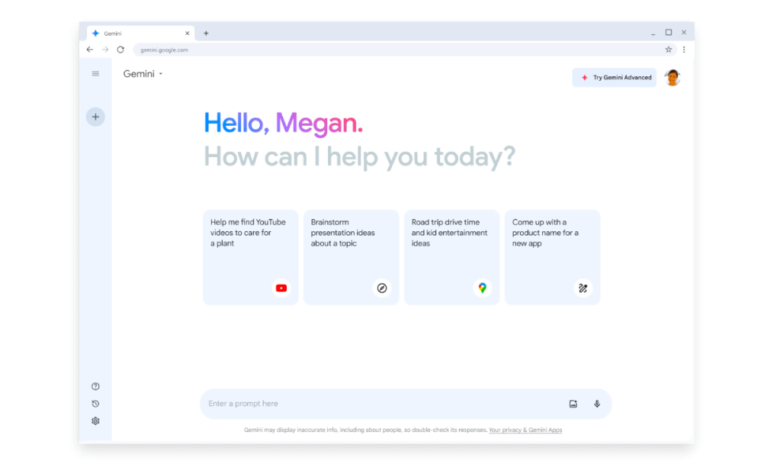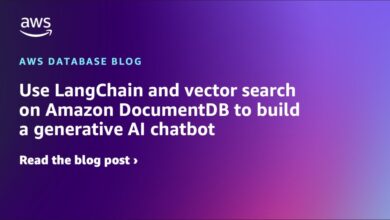Google brings Gemini AI to the classroom – Computerworld

Google’s Gemini will soon be available to education institutions, the company said Thursday, with the generative AI (genAI) assistant able to help teachers draft lesson plans and create personalized learning materials.
Gemini will come to Workspace for Education subscriptions on May 23 via two optional paid add-ons: Gemini Education, a “lower priced” offering with monthly usage limits, and Gemini Education Premium.
Gemini Education provides access to genAI features in Workspace apps such as Docs, Sheets, Slides, and Gmail, alongside access to the Gemini chatbot. The premium version offers additional features in Google Meet, such as AI-powered note-taking and video conversation summaries.
“Gemini AI assistant brings genAI capabilities to the full suite of tools educators are using across the Workspace ecosystem,” said Matthew Leger, senior research manager on IDC’s Government Insights team. “This is important because, in education, I often see schools adopt a range of AI tools from different providers, leading to what I call ‘AI siloes’ that make AI governance, management, and cost control challenging.”
Leger added that these different tools can vary widely in quality and effectiveness, “so it is nice to now have some of the most powerful genAI models on the market available across many of the tools educators use every day, through one provider.”
Google in a blog post said it sees a range of uses for Gemini in education settings. Teachers, for instance, can use the tools to create a lesson plan, syllabus, or class exercise, with the ability to tailor content to student interests and skill levels. Gemini can also be used to generate images that can help bring concepts to life for students, Google said.
Google will also let teaching staff interact with learning tools via the Gemini conversational interface. Teachers can type “@OpenStax” in a prompt to receive responses based on the Rice University’s OpenStax textbooks, with in-line citations and links to relevant pages. A Data Commons extension — Google’s open source data repository — will similarly provide access to data on complex topics such as climate change or economics.
One of the key drawbacks of the large language models (LLMs) that power genAI tools such as Gemini is the tendency to hallucinate. With this in mind, the ability of the OpenStax and Data Commons extensions to pull information from trusted sources is an “important step” toward addressing user concerns, said Leger. The addition of a “double-check” feature also makes it easier to fact check outputs Gemini.
Outside of faculty staff, Gemini can help IT staff at an education institution create documentation, or assist a superintendent to create a newsletter or draft a job description. And students over the age of 18 can be given access to the Gemini chatbot for free when the AI assistant is enabled by an education institution’s IT admins.
Where generative AI tools are used effectively, there’s potential to significantly reduce the administrative burden on educators, he said.
Leger also pointed to the introduction of LearnLM by Google this week, a language model grounded in education research built specifically for learning purposes.
“This is critical because most language models in use today, while helpful for creating learning materials, aren’t necessarily trained in the same way educators are trained,” said Leger. “So, with a language model trained with educators in mind, the usefulness of these capabilities for educational purposes will only increase.”
Along with some of the potential benefits, educators that use genAI tools such as Gemini Education should be aware that while LLMs continue to improve, outputs can vary significantly, depending on how a question is asked.
“It is really, really important to develop and refine prompt engineering skills to be able to use these tools effectively,” said Leger. “This is a skill we will always need to brush up on over time and get better at.”
Users should also be wary of potential biases and a lack of explainability around responses. To ensure safe and ethical use of the tools, customers should work with the provider to understand what goes into the model and any resulting limitations, said Leger.
Leger also advises that educators look beyond possible productivity gains as a marker of success when it comes to AI investment.
“The real magic in AI is its ability to make education more human, not less, by giving educators time back in their day to spend interpersonal time with students,” he said. “If we make these AI investments without taking advantage of this, we will lose a big opportunity to improve student satisfaction and success.”



![N.Y. Bill Would Require Users to Swear They Won’t Use Generative AI to Produce “Offensive, Harassing, Violent, [or] Discriminatory” Speech N.Y. Bill Would Require Users to Swear They Won’t Use Generative AI to Produce “Offensive, Harassing, Violent, [or] Discriminatory” Speech](https://europeantech.news/wp-content/uploads/2024/04/the-volokh-conspiracy-390x220.jpg)